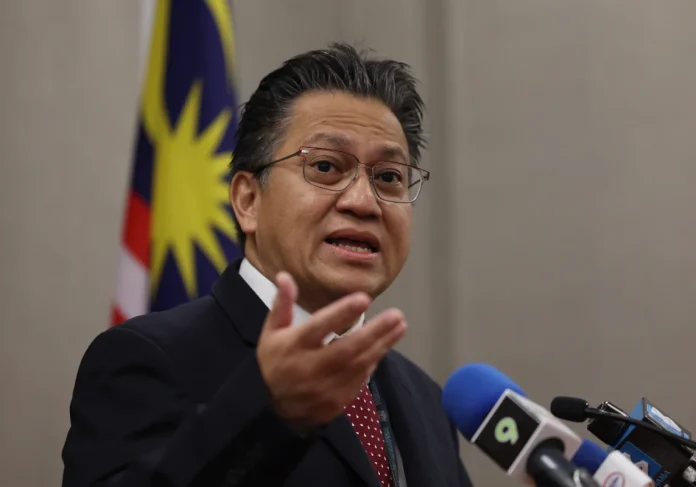Deeper ASEAN-China cooperation on standards and customs will reinforce regional supply chains and boost economic resilience amid global shifts.
FUZHOU: ASEAN and China’s agreement to deepen cooperation on standards, sanitary and phytosanitary measures, and customs procedures marks a major step toward bolstering regional economic resilience and strengthening supply chains amid shifting global dynamics.
Dewan Negara Deputy President Senator Datuk Nur Jazlan Mohamed said the cooperation would support a more sustainable regional economy, enhance trade facilitation, and ensure that the free trade agreement continues to keep pace with evolving global developments.
Speaking at the High-Level Thematic Dialogues of ASEAN–China Week 2025 here on Tuesday, he said the strengthened cooperation areas were key outcomes of the recent 28th ASEAN–China Summit, which also saw the signing of the upgraded ASEAN-China Free Trade Area 3.0 (ACFTA 3.0).
He added that the new areas of focus include the Digital Economy, Green Economy, Supply Chain Connectivity, Competition and Consumer Protection, and Micro, Small and Medium-sized Enterprises (MSMEs).
“ASEAN demonstrated its commitment, based on ASEAN’s centrality and balanced diplomacy, through meetings with both the US President Donald Trump and China’s Premier Li Qiang that exemplify ASEAN’s neutral and inclusive approach,” he said.
Nur Jazlan said Malaysia’s leadership continues to strengthen the region’s ability to manage complex geopolitical dynamics through steady engagement and constructive dialogue.
He noted that ASEAN now has 11 members, with Timor-Leste as the newest, and stressed that while complete uniformity of views is neither possible nor necessary, there remains a shared appreciation for China’s consistent and constructive engagement.
On digital transformation, he highlighted the region’s rapid growth, of which in 2024, the ASEAN digital economy was valued at over US$300 billion, with projections to reach US$1 trillion by 2030.
He added that China remains a key global driver of technological progress, accounting for nearly 30 per cent of global artificial intelligence (AI) research output and contributing over US$1.4 trillion annually to its digital economy.
Nur Jazlan said the convergence of ASEAN’s youthful population with China’s advanced innovation ecosystem presents substantial opportunities for cooperation in data analytics, robotics and green technology.
He added that a deeper ASEAN–China digital partnership will help position Asia as a global leader in technological progress and sustainable development.
Co-hosted by the ACC and the Fujian Provincial People’s Government, the three-day ASEAN–China Week 2025 commenced on Monday under the theme “Our Shared Future: Bridging ASEAN 2045 and Chinese Modernisation.”
The event aims to showcase the thriving Comprehensive Strategic Partnership between China and ASEAN, while serving as a platform to strengthen mutual understanding, promote win-win cooperation, and deepen people-to-people exchanges.








